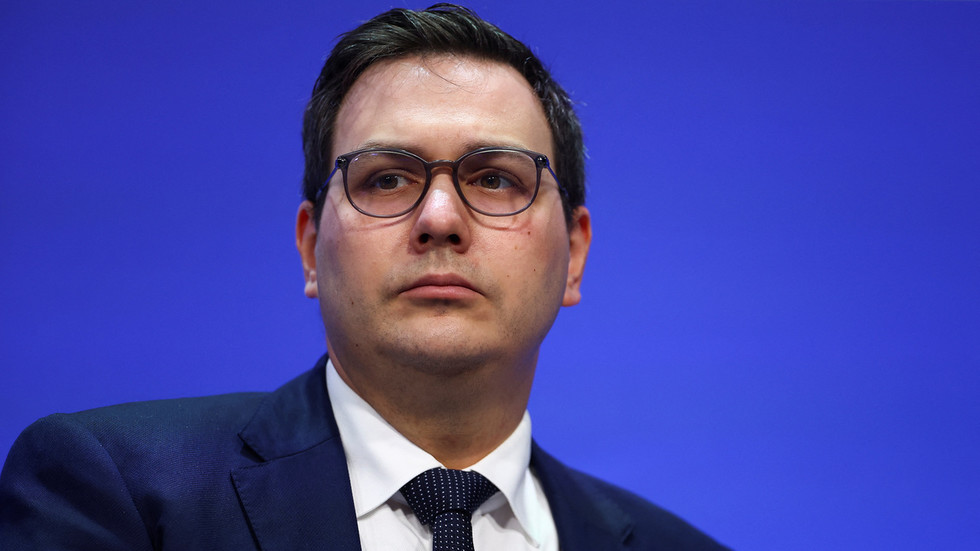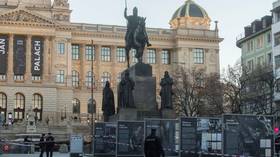
Czech Foreign Minister Jan Lipavsky has proposed limiting the movement of the embassy workers within Europe’s visa-free area

Czech Foreign Minister Jan Lipavsky © Getty Images / Hannah McKay; WPA Pool
Prague has suggested an addition to EU’s upcoming 13th round of sanctions against Moscow which would restrict the movement of Russian diplomats within the Schengen zone. Czech Foreign Minister Jan Lipavsky made the proposal at Monday’s Foreign Affairs Council meeting in Brussels.
For decades, anyone legally present in the European Union’s Schengen area has been allowed to travel between the countries inside it; the zone encompasses most of the member states. Border checkpoints between these countries have been mostly eliminated, and Schengen visas issued for travel to EU member states allow travelers to visit all of its other nations.
Lipavsky said that Russian mission staff and their families should only be allowed to travel within the state where they are accredited, insisting that “it is not right for Russian diplomats to take advantage of the Schengen Area.”
”We will do our utmost to ensure that our proposal is included in the 13th sanctions package,” said Lipavsky.
Previously, Prague had proposed including such restrictions in the EU’s 12th sanctions package during negotiations in November, but did not receive enough support for the move at the time. In December, Lipavsky once again brought up the idea at another Foreign Affairs Council, offering to implement it outside of the sanctions packages.
The Czech Foreign Minister has also complained that allowing Russian diplomats to enjoy the benefits of the Schengen zone potentially allowed Russian “agents” to enter countries and evade monitoring. He has insisted that the Russian embassy workers and their families should only be allowed to use biometric passports, which are harder to forge, and be given visas and residence permits that would only allow them to travel within their host country.

Read more
Russia has called Prague’s proposal “stupid” and a blind attempt to annoy Moscow. Kremlin spokesman Dmitry Peskov argued in November that complicating the work of Russian diplomats hampered the EU’s ability to communicate with Moscow. The effective elimination of most border controls between EU states would make compliance with the restriction difficult.
The Czech Republic has been one of Ukraine’s staunchest supporters in the EU and has supplied the country with both financial and military aid while also pushing for harsher sanctions against Moscow; the country seized some 70 properties belonging to the Russian government last year.
After the start of the Ukraine conflict in 2022, Prague also made it a crime to publicly support Moscow’s military offensive, threatening citizens with up to three years in jail for justifying Russia’s actions in Ukraine or praising senior Russian officials either online or at demonstrations.
That was after Czech law enforcement agencies reported a growing number of cases linked to the public approval of Russia’s offensive in Ukraine; the government has faced heavy public criticism over its support for Kiev and its ties to the US. In September, around 10,000 people took part in a rally in Prague demanding that the government resign over its pro-Western policies.




